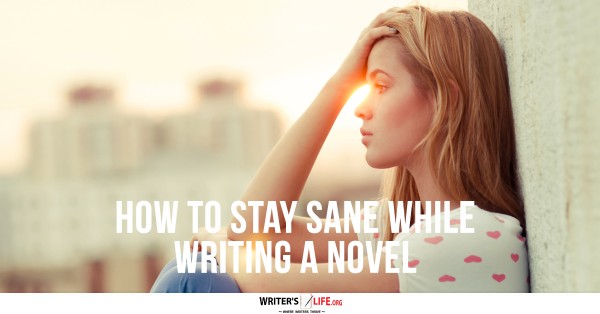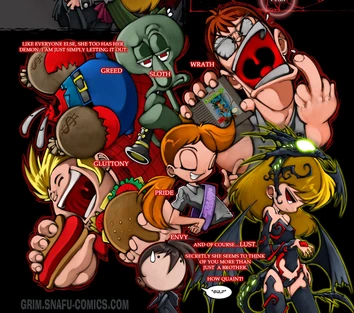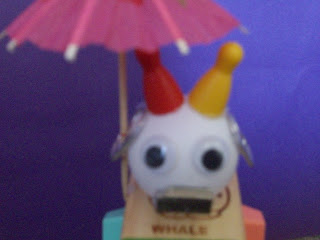From Writerslife.org:
When many of us start out writing it is because we are driven by a passion, an urge deep within that spurs us on and tells us that we must do this.
Right at the beginning, everything seems fresh and new, we are full of adrenaline and excitement about embarking on this new journey, and wonder what the future may hold for us. We imagine that our writing will bring us deep fulfilment and personal satisfaction and that when we sit down to write it will be a pleasurable, creative and even an enlightening experience.
But that's far from the truth.
Look, I'm not saying that all of this is nonsense. In fact, writing can be all of the above and more. The trouble is that for novice writers the idealistic view of a writer’s life and the lofty expectations they have of what being a writer will be like come very quickly crashing down when they actually get down to work.
It is far better for us to be realistic, to understand what it really means to be a writer, to face those hard truths about writing and be prepared for what’s to come. Otherwise when we are faced with the reality of a writer’s life, and when we hit those inevitable obstacles and pitfalls on our writing journey, we’ll be better prepared for them and less likely to give up.
So what is it really like to be a writer? What are the hard truths that every writer must face?
You’ll procrastinate (and then beat yourself up about it)
You create a writing schedule, and you're so excited about the idea of starting that it never even crosses your mind that you won’t stick to it. Then suddenly when ‘real life’ gets in the way, your writing window gets smaller and smaller and then you realise you haven’t done any in three weeks and have forgotten half your story in the process. It’s so easy to find reasons not to write, and when we don’t find the time we tend to be extremely hard on ourselves. Make your writing schedule realistic and reasonable and learn to prioritise it. If it’s important enough you’ll find a way.
You won’t be very good (at first)
Some people are born with a great writing talent, but no matter how talented we are, our first drafts are always a bit rubbish, and we all have days where we look back at our writing and wonder what on earth we were thinking. It’s OK to be bad at writing. If you keep at it, you WILL get better.
You won’t like certain parts of the process - but you’ll have to do them anyway
A writer’s life doesn’t involve just writing. To give writing a real shot there is so much more to do. From editing to marketing you have to learn a lot of new skills - some of them you won’t enjoy, but just remember it’s all worth it in the end.
You’ll lose confidence in yourself
You’ll have days where you start to question everything. You’ll believe you are a terrible writer, you’ll be embarrassed that you even entertained the notion that you could do it, you’ll think about giving up. Know that every writer has moments like these, even the really, really good ones -but don't despair, for they will pass.
You’ll get writer’s block
You’ll have days where you sit down to write and absolutely nothing comes out. You’ll think your ideas have dried up and your creativity has vanished. Writer’s block is a curse, however, there are plenty of things you can do to get back on track.
You’ll get criticised, and it hurts
Every single writer who is brave enough to put their work ‘out there’ will experience criticism from others - whether you should listen to them or not is your call. However, we all know it hurts when someone doesn’t appreciate your writing, especially when you’ve put your heart and soul into it. But even the greatest writers of all time have been rejected, scorned and laughed at, so at least you can take solace in the fact that you’re in good company.
You have to actually practice and learn stuff
There is always room for improvement when it comes to writing, and there is lots to learn! Even if writing comes naturally to you, you should strive to get better and always do more.
You’ll have to market your own book
No matter which publishing route you choose, you’ll end up having to do some marketing of your own. Be it book signings to social media, marketing is part and parcel of the job.
You (probably) won’t become a famous author
At the end of the day, only a tiny fraction of writers go on to be famous and highly successful authors. You might be one of them, but it’s more likely that you won’t. Accept that and learn how to make writing part of your life without fame and fortune being part of it - the sooner you do the better.
If you’ve read all of the above, acknowledged it, accepted it and still have a burning desire to write, that’s great news. Let’s face it, some of the toughest things, the things we have to put the most effort into in life, are also the most rewarding and those that we wouldn’t change for a second (just ask any parent). So no matter how tough writing gets, you’ll keep doing it anyway - because you love it.
I think I am beginning to see most of these truths and have in fact, already seen some of them and knew about some of them before I even saw this blogpost. I'm already coming up with ideas on how to do marketing of my book, namely where to have book signings in my home town. I already know some places that would be great venues for such an event. And I definitely will announce on my blog when my book gets published, as well as on Facebook and Twitter.
I already knew editing would be part of the process. That is pretty obvious. And same for rewriting. I was told long ago that "writing is rewriting is rewriting is rewriting..."
I don't expect to be famous, though I have people I already know who will most likely red my work.
Right now, I'm taking break from my memoir and hope to work on another story I have started writing. Or maybe even something else entirely. Maybe just doing a journal. Starting in September, a fellow client at the center where I work and attend will be starting a journaling class. I think I should participate in this group. It should be helpful to my writing.


































